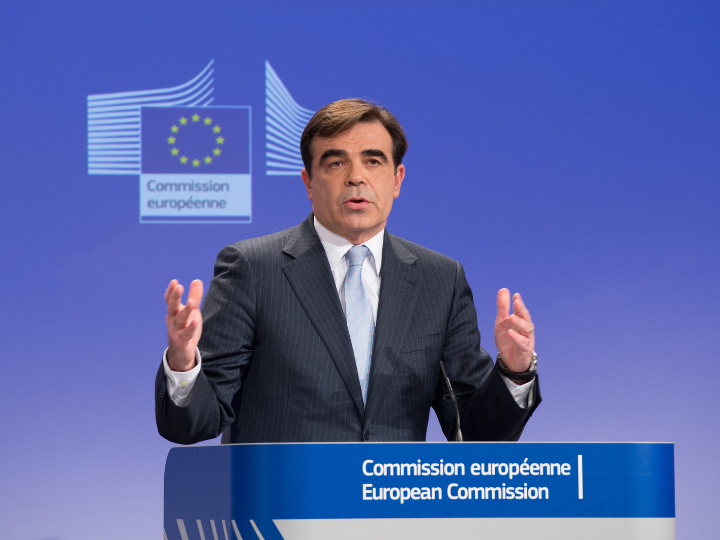by Margaritis Schinas
Schengen has become a symbol of what Europe stands for today. It’s part of our model of society, of our European way of life. It’s in a way the jewel in our crown. It has not always been like that. I still remember when I was 15 and travelled for the first time abroad from Greece, I was body searched at the airport of Thessaloniki by very aggressive customs officers who were trying to establish whether I was carrying with me extra foreign currency, and I was seen as a potential criminal, not as a free citizen exercising my right to mobility. Lots of time has passed since these traumatic experiences. Now Europeans move freely across the board.
Schengen is the largest free travel area in the world. It allows more than 400 million EU citizens and visitors to move freely.
It’s also as President von der Leyen said in her State of the Union speech last September the linchpin of the single market and its four freedoms.
Schengen isn’t only about borders, it’s also about the economy.
It is clear that no system despite its success can bear the test of time without renewal.
And we saw that Schengen has suffered two sets of very severe acute pressure in the last years. First during the migratory crisis in 2016. But also recently with the pandemic. This led to uncoordinated, sometimes blanket closures, restrictions to free movement and reintroduction of internal border controls that I don’t think helped a lot, and on the contrary harmed our way of life and our understanding of society and rights.
What we are presenting today is a new Schengen Strategy, which will reinforce Schengen. We have to save Schengen by reinforcing and reforming it.
The Strategy takes a comprehensive look at the three pillars that underpin Schengen.
The first is external borders. Contrary to what many people believe, Schengen does not do away with borders altogether but relies on the premise that to have free internal borders, we have to displace our border management capacity to our external borders.
A lot has been done in that respect: a significant reinforcement of Frontex, which is now becoming a fully-fledged the European Border and Coast Guard, the introduction and digitalisation of interoperable interconnected databases, including the
Entry/Exit System (EES) and the European Travel Information and Authorisation System (ETIAS)
The second pillar is the idea of alternatives. Schengen must be supported by a vast set of measures that compensate for the absence of internal controls. There is an array of tools and initiatives that can help us.
Schengen is about more than just borders. We can reinforce police cooperation. We have a common European visa policy. We have a common European system of returns. We have a common Security Union. And down the road, we hope we will have the New Pact for Migration and Asylum that will help us with alternatives in border management, and reducing the potential risks of secondary movements and absconding within our borders.
Finally, the third pillar is the governance pillar. Schengen requires a robust governance system. The whole logic of Schengen relies on a spirit of mutual trust, joint accountability and ownership of results.
We have a system in place, the Schengen Evaluation Mechanism, which is a peer-to-peer system that allows us to test continuously the resilience and efficiency of our Schengen controls and mechanisms. This system over time has become a bit cumbersome and bureaucratic. We now want to lighten it up a bit, reform it, modernise it. We also want to bring up these Schengen evaluations more to the political level. It often becomes a discussion among like-minded officials. We want politicians, Ministers in the Council, and Members of the European Parliament to have the opportunity to discuss these issues
Later this year we will come with a separate proposal on theSchengen Borders Code. The revision of this Code would introduce targeted amendments to the rules that govern potential measures at our internal borders. Our objective there is to introduce into the Borders Code the lessons learned from the pandemic. And one of the lessons learned from the pandemic is that unilateral, blanket-type measures of closing borders do not help. We are envisaging more proportional, more logical initiatives, more coordination between neighbouring countries, greater use of the Green Lanes that helped during the pandemic. So in the future proposal on the Schengen Borders Code you should expect to see a different approach.
When we talk about Schengen, we are talking about something which is big, which matters to all in Europe. It works to the benefit of our citizens, our internal market and our economies, and we are determined to protect it and make sure that nothing can threaten all Schengen represents.




 By: N. Peter Kramer
By: N. Peter Kramer
